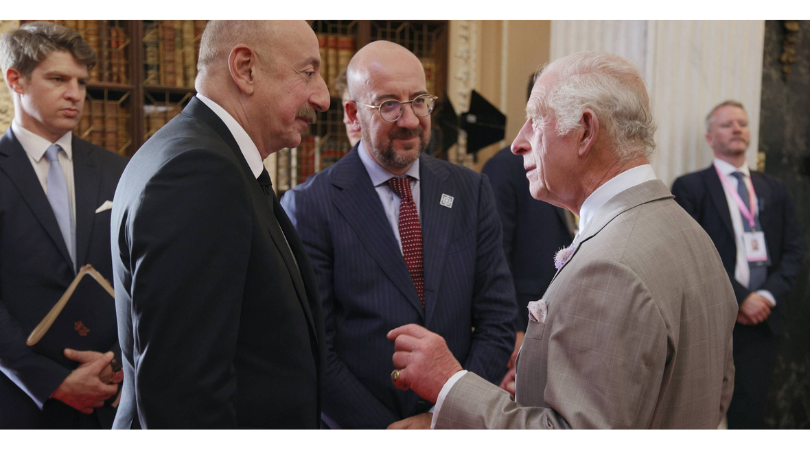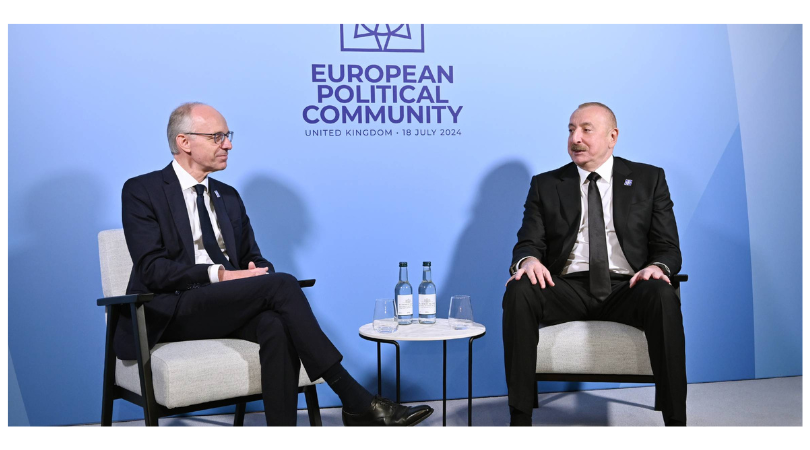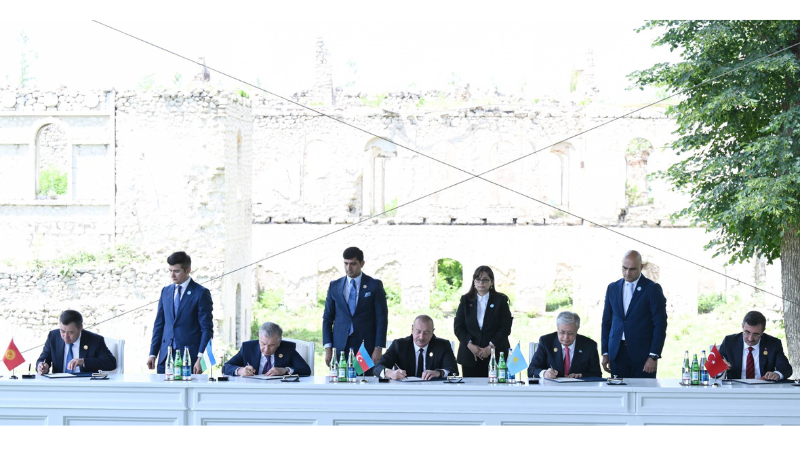Commentary on allegations made by Nikol Pashinyan, Prime Minister of Armenia during his interview to Public TV
A number of allegations against Azerbaijan made by Nikol Pashinyan, Prime Minister of Armenia during his interview to Public TV dated October 10, makes clear that Armenia did not give up political manipulations and distorted interpretation.
We would like to remind Armenia, which presented the reason for Azerbaijan's refusal to participate in the European Political Community in Granada as Azerbaijan's hindrance to peace in every possible way, of facts of Armenia’s avoidance from participation in various platforms without any reason since December of last year. In contrast to Armenia, Azerbaijan is the main initiator of the peace principles, peace treaty, opening of communications, and demarcation that Armenia has not given any feedback for a long time, and always respects the efforts of each and every mediator in all platforms is well-known to all.
Azerbaijan which has repeatedly stated that clearance of remnants of the Armenian armed forces and the puppet regime created by Armenia from the territory of our country on September 20 has created great opportunities for peace in the region, also expects Armenia’s refraining from territorial claims and interference against our country and other neighbors.
At the same time, while referring to the principles of independence, sovereignty, territorial integrity and inviolability of borders, non-use of force and non-threat of force in the document signed at the Granada meeting, Prime Minister Nikol Pashinyan forgets that his country has violated these principles for more than 30 years, including 5 years of his term, as well as before the 44-day Patriotic War and the post-conflict stage are no longer secret for anyone. Notwithstanding Armenia, Azerbaijan has never distorted these principles.
With its unconstructive position, Armenia, which has not fulfilled its obligations within the Trilateral Statement in organizing unhindered movement of citizens, vehicles and cargo in both directions, guaranteeing security in this direction, as well as ensuring the construction of new transport communications connecting the western regions of Azerbaijan with Nakhchivan Autonomous Republic will be remembered for his self-isolation policy, is inevitable. The agreement on the construction of a road and railway, which will connect Azerbaijan to the Nakhchivan Autonomous Republic through the territory of the Islamic Republic of Iran, once again shows that, unlike Armenia, Azerbaijan is constantly making a positive contribution to the development of transport corridors in the region using alternative routes.
While there is no practice of measuring respect for territorial integrity and delimitation by square kilometer or determining it on the basis of an unapproved map from both sides, Prime Minister of Armenia’s once again reference to these issues is surprising. A number of maps of our region were prepared in the time of the USSR, as well as not all of these maps were based on legal documents authorizing the maps is known. Coming to the 1975 map referred to by Armenia, we would like to note once again that such a map does not exist, a number of maps were made at different times in 1973-1986. In general, in accordance with the practice, the delimitation process is carried out not only on the basis of maps, at the same time, in order for these maps to be a reference source, these maps must be based on international legal documents, including those approved in one way or another by both countries. While Armenia has not yet delimited its borders with any of its neighbors due to its territorial claims, Armenia’s claim that the delimitation must be on the basis of only one map, does not make sense.
In order to justify Armenia’s keeping 8 villages of Azerbaijan under occupation, claiming that Azerbaijan allegedly occupied the territories of some Armenian villages is completely false. In violation of all norms and principles of international law, as well as in violation of international humanitarian law, Armenia occupied 8 villages of Azerbaijan and committed mass massacres against the population there.
While historical opportunities emerged for the normalization of relations between Azerbaijan and Armenia, the signing of a peace treaty, and the transformation of the South Caucasus region into a place of peace and cooperation, the fact that the Prime Minister of Armenia once again put forward conditions in the peace process demonstrates that this country does not learn from history.




















